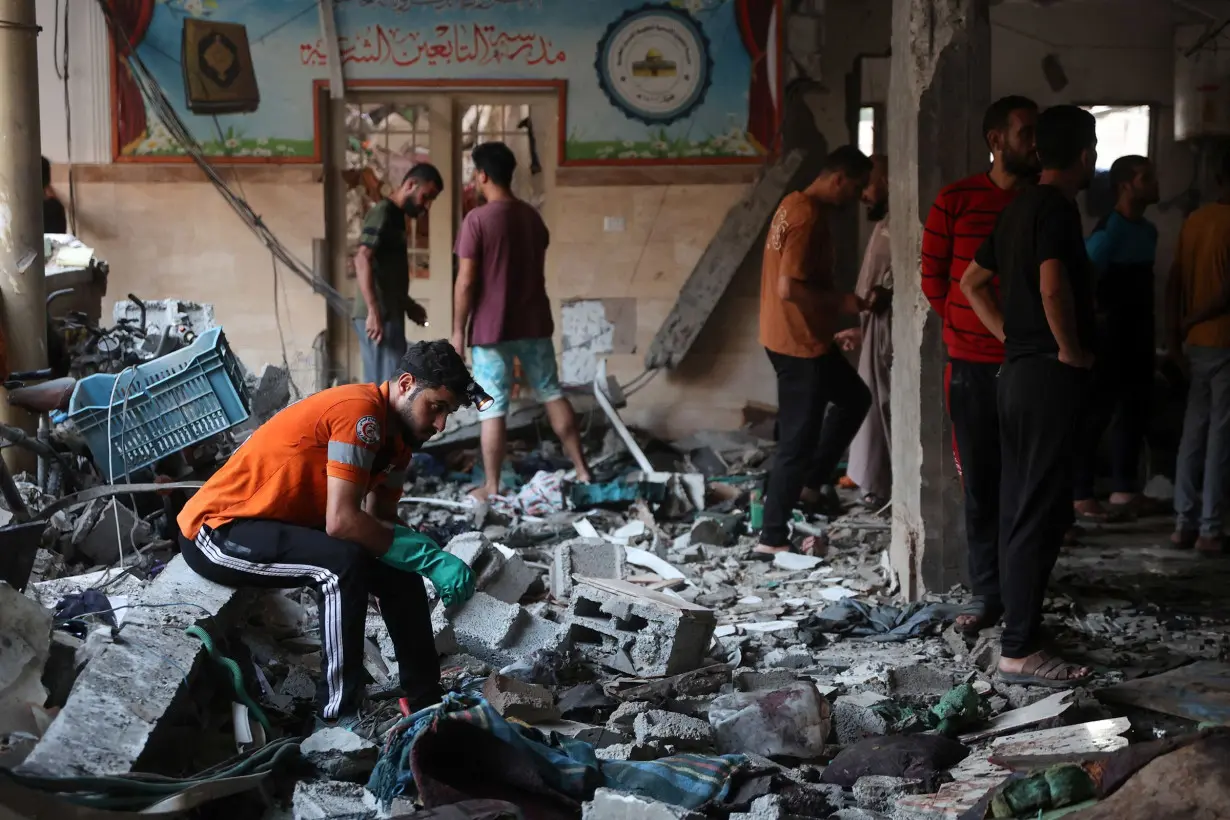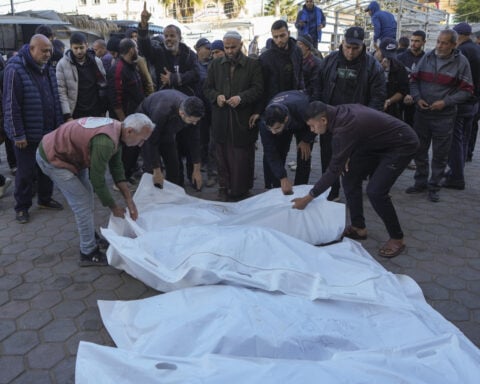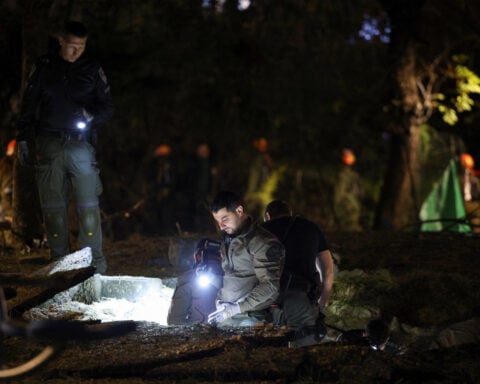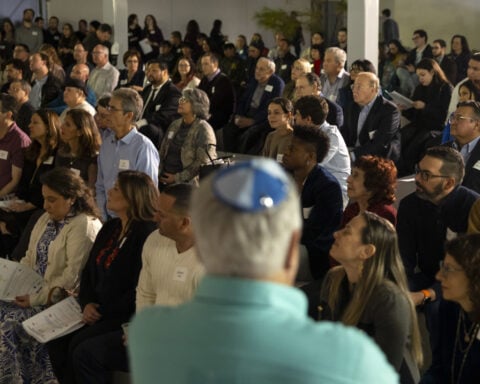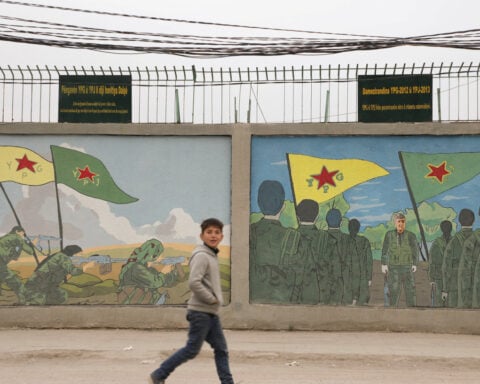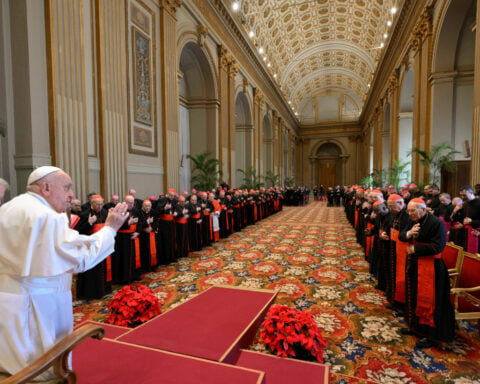(CNN) — Hamas leader Yahya Sinwar wants a ceasefire deal — at least, that’s the message Egyptian and Qatari mediators have conveyed to Israeli officials in recent days ahead of a critical summit later this week, an Israeli source familiar with the matter said.
Whether the Israeli prime minister wants one remains shrouded in uncertainty.
Netanyahu’s allies have told journalists and other government officials that the Israeli prime minister is ready to make a deal, regardless of the impact on his governing coalition, two Israeli sources said. But the Israeli security establishment remains considerably more skeptical of Netanyahu’s willingness to strike a deal given fierce opposition from far-right ministers in his coalition.
“Nobody knows what Bibi wants,” one Israeli source said, referring to Netanyahu by his nickname.
What is clear is that Netanyahu is going to face a mountain of pressure this week from the United States to agree to a ceasefire and hostage release deal.
But even as the mediators told Israel that Sinwar wants a deal, Hamas on Sunday cast doubt on its participation in the next round of ceasefire negotiations scheduled for Thursday, saying it has asked mediators to implement a ceasefire plan based on previous ceasefire talks such as those put forward by US President Joe Biden and the UN Security Council in July.
“Out of concern and responsibility towards our people and their interests, the movement demands the mediators to present a plan to implement what they presented to the movement and agreed upon on July 2, 2024, based on Biden’s vision and the UN Security Council resolution, and to compel the occupation to do so, instead of going for further negotiation rounds or new proposals,” the Hamas statement reads.
Hamas indicated that its latest stance was influenced by an Israeli attack Saturday on a school in Gaza that killed at least 93 people, according to local officials.
US officials have made clear to their Israeli counterparts they believe the time to reach a ceasefire deal is now in order to avoid a wider regional war, the Israeli source said.
The Hostage and Missing Families Forum, a powerful voice in Israel, has also called on Israel and Hamas to finalize a hostage and ceasefire deal.
”A deal is the only path to bring all hostages home. Time is running out. The hostages have no more to spare. A deal must be signed now!”, the forum said in a statement on Thursday.
At the same time, Netanyahu’s coalition partners have made it clear they do not want Israel to strike a deal with Hamas.
Israeli Finance Minister Bezalel Smotrich called the proposed ceasefire deal a “surrender deal” on Friday. Writing on social media platform X he said: “I call on the Prime Minister not to fall into this trap and not to agree to a shift, even the slightest, from the red lines he set just recently, and they are also very problematic.”
White House national security spokesperson John Kirby rebuked Smotrich’s comments, saying “his arguments are dead wrong.”
However, Netanyahu’s political future largely depends on his coalition partners – several of whom have already threatening to leave the government and cause its collapse if he agrees to the deal.
The Knesset (Israeli parliament) is currently out of session for its summer recess, which would make it harder – although not impossible – for Smotrich and National Security Minister Itamar Ben Gvir to collapse the current government. And Israeli sources indicated that Netanyahu may call for elections if a ceasefire deal is reached, which would allow him to control the timing of such elections.
Delegations working ‘around the clock’
Mediators are set to convene with Israeli and Hamas negotiating teams in Cairo or Doha next week. But negotiations are already underway with technical delegations working “around the clock” through key details ahead of Thursday’s meeting, the Israeli source said.
The talks come at an extremely tense time in the Middle East. A pair of high profile assassinations in Lebanon and Iran in recent weeks has sparked fears of retaliation that could lead to a wider conflict.
Israel last week killed Fu’ad Shukr, the top military commander of Hezbollah, the Iran-backed Lebanese armed group. The next day, Israel is widely believed to have assassinated Hamas’ political leader Ismail Haniyeh in Tehran, in what is seen as a major embarrassment for the Iranian Revolutionary Guards (IRGC) which was hosting Hanuyeah.
Israel has neither confirmed nor denied its involvement in that incident.
There are indications that Iran will reconsider the scale and timing of its retaliation against Israel if there is a ceasefire in Gaza, a possibility that has put added pressure on Israel to reach a deal in order to avoid the risk of an all-out regional war.
Sinwar, the leader of Hamas in Gaza and, according to Israel, one of the masterminds behind the deadly October 7 terror attack was named the new head of the group’s political bureau following Haniyeh’s assassination.
Sinwar has not been seen in public since October 7 and is believed to be hiding in the tunnels trenched beneath Gaza. Haniyeh has played a key role in ceasefire talks but Sinwar’s role has been more limited, given the his difficulties in communicating with the outside world.
The talks come after an Israeli strike on a school and mosque compound killed scores, sparking international outrage. Israel said it was targeting a Hamas command center and had killed several fighters.
Following the strike US Vice President Kamala Harris, the Democratic nominee for president, said Saturday that “far too many” civilians have been killed in Gaza, saying a deal “needs to get done now.”
This story has been updated with additional developments Sunday.
The-CNN-Wire
™ & © 2024 Cable News Network, Inc., a Warner Bros. Discovery Company. All rights reserved.

 German Christmas market ramming is the latest attack to use vehicles as deadly weapons
German Christmas market ramming is the latest attack to use vehicles as deadly weapons
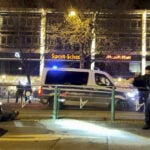 What we know about the suspect behind the German Christmas market attack
What we know about the suspect behind the German Christmas market attack
 How to save a fentanyl victim: Key facts about naloxone
How to save a fentanyl victim: Key facts about naloxone
 Pope Francis reprimands Vatican staff for gossiping in annual Christmas message
Pope Francis reprimands Vatican staff for gossiping in annual Christmas message
 In a calendar rarity, Hanukkah starts this year on Christmas Day
In a calendar rarity, Hanukkah starts this year on Christmas Day
 Russia's UK embassy denounces G7 loans to Ukraine as 'fraudulent scheme'
Russia's UK embassy denounces G7 loans to Ukraine as 'fraudulent scheme'
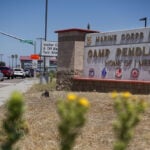 Drones continue to buzz over US bases. The military isn’t sure why or how to stop them
Drones continue to buzz over US bases. The military isn’t sure why or how to stop them
 Senate passes RFK Stadium land bill, giving the Washington Commanders a major off-the-field win
Senate passes RFK Stadium land bill, giving the Washington Commanders a major off-the-field win
 Tiger Woods says his son Charlie beat him in a round of golf for the first time, but only on a nine hole course
Tiger Woods says his son Charlie beat him in a round of golf for the first time, but only on a nine hole course
 Philadelphia 76ers star Joel Embiid working through injuries and mental health struggles
Philadelphia 76ers star Joel Embiid working through injuries and mental health struggles
